Newly commissioned officers and officer hopefuls look to various areas for role models. Some look to business and politics while others look to science and academia. Yet, most look towards military officers, persons such as GEN Creighton Abrams, LTG Lewis “Chesty” Puller, or ADM Chester Nimitz. Many are able to find key qualities for officers in these persons; duty to country and subordinates, leadership, tactical ability, and intelligence.
However, one officer that frequently is never mentioned is Lieutenant General Samuel V. Wilson of the U.S. Army.
General Sam
Wilson is a figure not many have ever heard of. Those who have, have probably been exposed to him from his being featured in Ken Burns and Lynn Novick’s 2017 docuseries The Vietnam War. While Wilson is featured prominently in discussing the beginning stages of entering Vietnam and providing an anecdote or two, he is far more than meets the eye.
Wilson, also known as “General Sam”, began his long career of military service in the World War II era. He lied about his age and enlisted in 1940 in the Virginia Army National Guard, eventually performing so well he was commissioned as an Infantry officer, serving with Merrill’s Marauders in Burma and the Office of Strategic Services (OSS).
After the war ended, he joined the Regular Army as a 2nd Lieutenant, going through the U.S. Army Foreign Affairs Officer program in 1947.
Throughout the next thirty years, he served in a variety of intelligence and special operations roles, including the Director of Instruction at the John F. Kennedy Special Warfare Center and School, Deputy Assistant Secretary of Defense for Special Operations, commanded the 6th Special Forces Group (SFG), was named a U.S. Defense Attaché to Moscow, before rounding out his thirty-seven-year career as Director of the Defense Intelligence Agency (DIA). He had also been the CIA’s Chief of Station in Moscow and had worked as a case officer out of Berlin.
He was also consulted in retirement on the construction of Delta Force and for the reformation of the U.S. Armed Forces’ Special Operations Forces (SOF) in the early-mid 1980s and taught at Hampden-Sydney College, eventually becoming its president in the early 1990s.
By the time Burns and Novick’s documentary aired, Wilson had passed away, yet his mark left upon the U.S. military is fascinating and still felt today.
Wilson exemplifies the intelligence officer. A highly intelligent and well-versed person in intelligence and special operations affairs, he had no real formal education, yet was a learned professional who significantly benefited the U.S. Armed Forces as a whole. His career has left an indelible mark upon the U.S. Special Operations and Intelligence communities for the better. For all intents and purposes, Wilson is a Warrior-Scholar; a physically fit soldier capable of carrying out gruelling and imposing physical and combat-related tasks who also takes it upon himself to become informed with a given country, military strategy, or region.
Why are these characteristics important for future officers?
The characteristics Wilson embodies should serve as the role model for officers across the U.S. Armed Forces, but especially those in the intelligence and special operations fields.
From a special operations standpoint, Wilson modernized the special operations community, imbuing them with the tools needed to conduct their operations in modern conflicts. He developed and pushed for civilian oversight positions for the special operations field, something which had fallen off in recent years, but seems to be becoming solved under Secretary of Defense Austin. In the aftermath of the Iran Hostage Crisis of 1980, Wilson pushed for the creation of the Cohen-Nunn Amendment to the 1987 National Defense Authorization Act. The Cohen-Nunn Amendment streamlined how resources would be allocated to SOF, improved how SOF units could be utilized in combat, and better coordinated joint military operations.
These would allow for joint military task forces and operations to be better coordinated, additional training for methods like Direct Action (DA), Counterinsurgency (COIN), Unconventional Warfare (UW), and various others. Furthermore, it allowed military forces to work in coordination with one another on large scale operations, which would help in the 1989 invasion of Panama, the First Gulf War, and the Iraq War alongside multiple other smaller engagements of various nature. The special operations community, by and large, owes him a great debt of gratitude for streamlining logistical, combat, and combat support processes within the special operations community.
From an intelligence standpoint, he modernized much of the intelligence gathering, collection, and analysis processes that we today take for granted. Having spent all of his adult life in either intelligence, surveillance, or reconnaissance roles of various types, Wilson was something of an expert in this field. While Director of the DIA, a post he held only from May 1976 to August 1977, he “completely reorganized the Agency…[initiating] in-depth studies to examine the short-term objectives [and adjusted] to centralize its activities to cope with pressures to reduce resources” while also solidifying the ability to which intelligence could be provided to the Department of Defense (DoD), the rest of the Intelligence Community (IC), and any other government agency or executive that requires military information.
Not only this, but the entire process of analyzing intelligence had changed considerably and for the better. While intelligence had used to be analyzed hectically in the field, Wilson devised the DIA to analyze intelligence “back [at] headquarters, where analysts pored over material streaming in from around the world and sought to draw connections”.
Wilson’s contributions to the SOF and Intel communities are innumerable and massive. What is even more impressive is the fact that Wilson was able to attain all of this without a formal education.
The Importance of Self-Education
In spite of all his achievements, Wilson had no real education. While he had intended to attend college (eventually at the school where he taught, Hampden-Sydney College), he was never able to gain a degree, though he had taken some graduate-level courses at Columbia immediately following the Second World War.
Wilson exemplifies the importance of self-education. He persistently engaged in a policy of self-study, educating himself and working to learn more about any given subject. When he was assigned to Moscow, he took the opportunity to learn about not only Soviet Russia’s military, but the overall culture, language, and entire region itself. He even garnered a near-fluent speaking, writing, and understanding of Russian.
Upon arriving in Vietnam, he deeply immersed himself in Vietnamese culture and researched the U.S. military strategy, the overall effectiveness of the South Vietnamese military, the commitment of the North Vietnamese, and multiple other highly important factors. His own research and investigation led him to the conclusion that the United States should leave Vietnam and not engage in a military conflict against the NVA or Viet Cong.
This policy of self-study is incredibly important for military officers, yet often is ignored when discussing the development of younger officers. Reading books on military history, theory, strategy, and operations is imperative for the proper development of an effective leader, be they commanding soldiers in combat support, direct action, or other military mission. It allows senior personnel, be they commissioned or senior non-commissioned officers, to better understand the specific districts, countries, and regions they operate in and become academically experienced in these geopolitical hot spots.
While this type of training or self-study is often forgotten or left understated in undergraduate school, the military itself works hard to try and foster this kind of thinking with various professional reading lists by high-ranking military officers, defense-oriented academic institutions, and privately run military-focused blogs. These reading lists greatly assist the U.S. military in fostering creativity and innovation within their officer corps, from Lieutenants and Ensigns to Colonels and Captains, however, they are only the start.
When developments occur abroad, such as the current developments in Ukraine with Russia or the fall of Afghanistan, it is imperative that officers become immersed in the history of the region, the geopolitical makeup of said region alongside becoming knowledgeable and aware of the culture, the people, the political changes, and the religion. These are incredibly important when becoming involved in combat operations as the people and history matter and becoming knowledgeable on these regions, becoming invested in these areas, will help overall in making stronger connections to the host or engaged country.
Sources

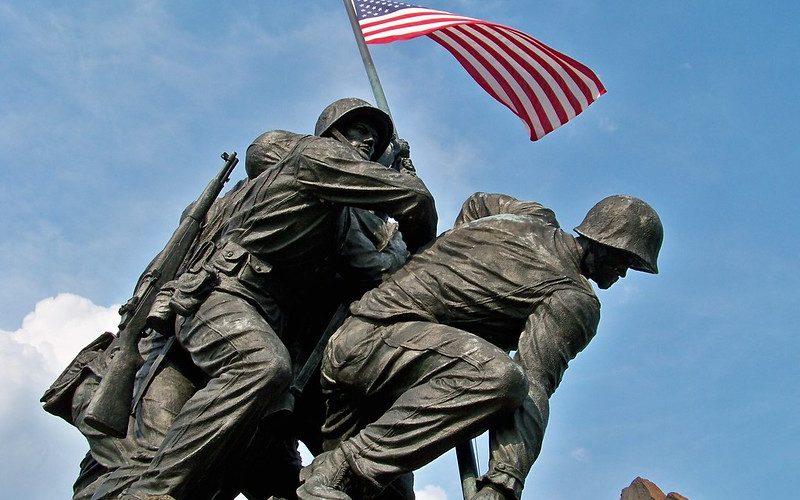
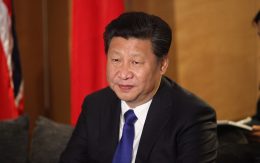
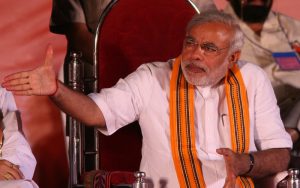
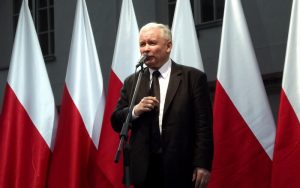
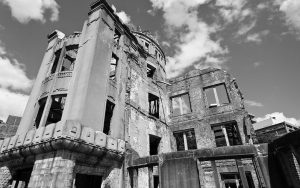
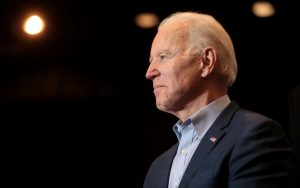

Be First to Comment